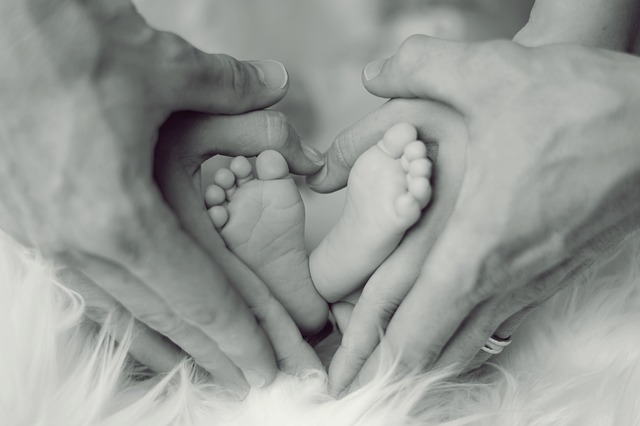Baby Health: Tips To Keep Your Newborn Healthy

Hi, I am Betty Knight, Owner of this site! I…
It’s natural for new parents to be concerned about keeping their children healthy and safe. A newborn can be a whirlwind of activity and excitement in your life, but it can also be a source of stress and exhaustion. It feels like a rollercoaster ride with sleepless nights, frequent feedings, and diaper changes. Because your newborn’s system is still developing, it might be at the risk of contracting an illness. Hence, it is crucial to provide timely care to neonates right after birth.
To ensure that the developing baby remains healthy inside the womb, a mother has to take folic acid, eat a nutritious diet, and visit the doctor regularly while pregnant. Learning how to take care of your little sunshine after birth necessitates assistance and regular visits to the healthcare provider. If this is your first child, you might be feeling a little overwhelmed by the additional responsibilities. Regardless, the following tips will save your time and help in taking care of your newborn.
- Identify any birth injuries early on
Doctors should offer several prenatal tests to examine both the mother’s and baby’s health. Medical practitioners must follow strict guidelines for addressing pregnancy, birth, and neonatal health issues. They should get informed consent from the parents and discuss the risks, benefits, and alternatives of specific actions in advance. This is crucial to preventing injuries during labor. However, if the child does sustain a life-altering injury due to the doctors’ negligence, you should seek immediate help. Contacting a birth injury justice center can help you take suitable legal action and safeguard the child’s future health. You can even get the hospital to pay for damages.
- Immunization
Immunization, often known as vaccination, is a critical component of an infant’s health protection. Vaccines help to prevent more than a dozen deadly diseases early on. Unvaccinated children are at risk of serious infections, including measles, polio, hepatitis, etc. Immunizations serve to reduce disease spread and protect newborns and toddlers from potentially fatal consequences. Hence, ensuring that adults and children over six months are up to date on their vaccination schedule is necessary. Consult your doctor and get the recommended shots when they’re due.
- Make a habit of washing your hands
It may feel overly cautious, but everybody who will be holding your baby must have clean hands. Colds, flu, viruses, and allergies will be less likely to transfer to your child. If you know someone in your family is unwell, urge them to wait until they feel better before coming to see the baby. You don’t need to be as concerned about safeguarding your baby from germs until it’s more than a month or two old. As your child grows, its immune system will become stronger. Your child’s immune system is most sensitive to germs throughout the first few years of life.
- Breastfeed your child
Breastfeeding should be the primary source of nutrition for newborns up to six months of age. Breast milk can help your baby’s health by providing antibodies and a higher level of immunity by the mother. While nursing can be challenging in the first few weeks post-labor, it can also be a joyful experience for both the mother and the baby. If a mother is having difficulty breastfeeding, one option is to give the baby donated milk. But this is a short-term solution carried out in hospital settings. However, human milk banks have donated breast milk available. If you feel uncomfortable, consider investing in a breast pump.
- Ensure the child is hydrated
The need for maintaining proper hydration in newborns and children is the same as it is in adults. However, the amount of water required to do this will vary. Check for early signs of dehydration, such as more than six hours without a wet diaper, no tears while sobbing, or dry lips, to ensure your child is hydrated. Offer breast milk or formula milk frequently and stay attuned to the symptoms. Dress the babies in breathable clothes at night to keep them from losing water through sweating.
- Don’t overuse the humidifier
A humidifier delivers moisture to the air to avoid dryness in the body, which can cause irritation. It aids in the relief of nasal congestion and allergies. Besides, it also keeps the room hydrated. Keep the power to a moderate level, and replace the filter often. However, overusing the humidifier can encourage mold growth in the room leading to respiratory problems. Follow the necessary precautions while using the humidifier in the baby’s room.
- Gentle warm bath
Bathing 2 to 3 times a week will suffice to keep your baby clean. However, if your infant enjoys warm showers, you can bathe them once a day. However, bathing your infant more than once a day will dry up their skin. Keep the water temperature between 37-38 degrees. Test the temperature of the water with your hand. It should be warm but not hot. Try softly placing your hand on your baby’s tummy to help them enjoy bath time. Infants may feel comfortable and protected this way.
Conclusion
Life with a newborn can be wonderful- but it can also be overwhelming, draining, and terrifying. During the first few weeks, your baby will only wake up to be fed and changed. There will be sleepless nights. Therefore, sleep when the baby sleeps to save yourself from fatigue. When your baby is awake, spend time with them, calm them down, and do some tummy time with them. New mothers will also face postpartum depression. If you’re having trouble making the shift, ask your spouse for assistance or seek advice from other family members or friends. Taking some necessary measures will help to keep your newborn safe from germs and illnesses.
What's Your Reaction?
Hi, I am Betty Knight, Owner of this site! I am a 'nearing 30-year-old', happily married to 1 awesome man. We live in the beautiful tourist town of Franklin NY.




